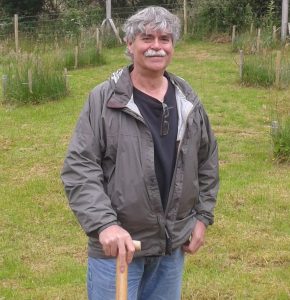
As Metro Vancouver residents prepare to vote in an upcoming transit referendum, members of the Diocese of New Westminster Eco-Justice Unit are hoping to promote discussion on wider issues of social and ecological justice.
Starting on March 16 and running through May 29, Elections B.C. will administer a plebiscite through a mail-in ballot in which voters will be asked to approve a 0.5 per cent increase to the Provincial Sales Tax in order to fund new transit projects.
The Metro Vancouver Alliance (MVA), a coalition of faith groups, union locals, academic departments and non-profits, has organized events in support of a Yes vote.
While the Eco-Justice Unit of the Diocese of New Westminster is a member organization of the MVA, the Rev. Margaret Marquardt, chair of the Eco-Justice Unit, said her group was mainly focused on promoting debate.
“Metro Vancouver Alliance is committed to a Yes [vote],” Marquardt said. “But let’s talk about it. Let’s think about it. Let’s engage people. Let’s think about what our role is as Anglicans in terms of reflecting ecologically, theologically and [on] the well-being [of] those who really struggle financially…being able to get where they need to go.”
One member of the Eco-Justice Unit, Nigel Haggan, has been vocal in his support of a Yes vote, and penned an op-ed for the February issue of the diocesan newspaper Topic in favour of the transit funding plan.
A marine biologist by trade, Haggan described eco-justice as the linking of social and ecological justice, and put the fight for accessible transit in the context of the church’s ministry as a whole.
“The mission of the church, as far as I understand, is to comfort the poor, the afflicted, the lame…the blind, the imprisoned, the socially disadvantaged,” Haggan said. “Bad transit falls most heavily on the most disadvantaged and least able to pay for it.”
Connecting the transit issue to the Marks of Mission, Marquardt said participation in the campaign is an example of deepening the Anglican understanding of being engaged with the world, caring for God’s work and nurturing the parish community.
Haggan added that environmental degradation caused by inadequate public transit ultimately affects rich and poor alike.
“You have reduced air quality and much higher instances of respiratory [illnesses] and other complaints…That is even-handed because there are rich and poor who live there. So even people who don’t take transit could suffer from the lack of transit or poor air quality.”
In the lead-up to the plebiscite, the Eco-Justice Unit, as part of the MVA, is helping organize events to raise awareness of the vote, such as a pair of recent public forums attended by mayors and city councillors.
Other contributions include creating flyers and posters, engaging with residents on the ramifications of a Yes vote and encouraging them to get their ballots in.
“We’re just [doing] our part, which I think is kind of a healthy way to see ourselves as a church, both giving leadership but also working collaboratively with others,” Marquardt said. “It seems to be really appreciated and respected within the wider community.”
On the question of whether the church should be involved in politics, Haggan responded, “I think the answer to that is a resounding yes.”
“Where there are issues of justice,” he said, “the church should be there.”
Interested in keeping up-to-date on news, opinion, events and resources from the Anglican Church of Canada? Sign up for our email alerts .
